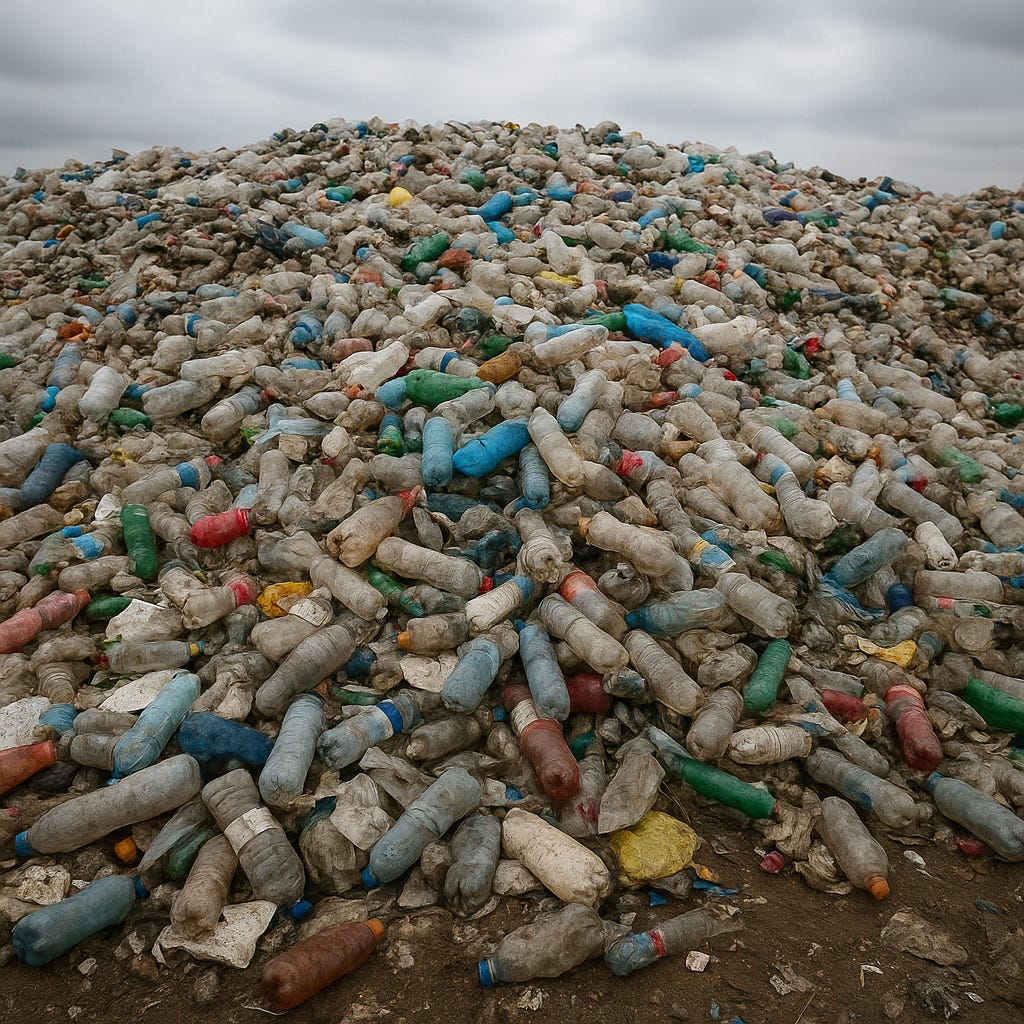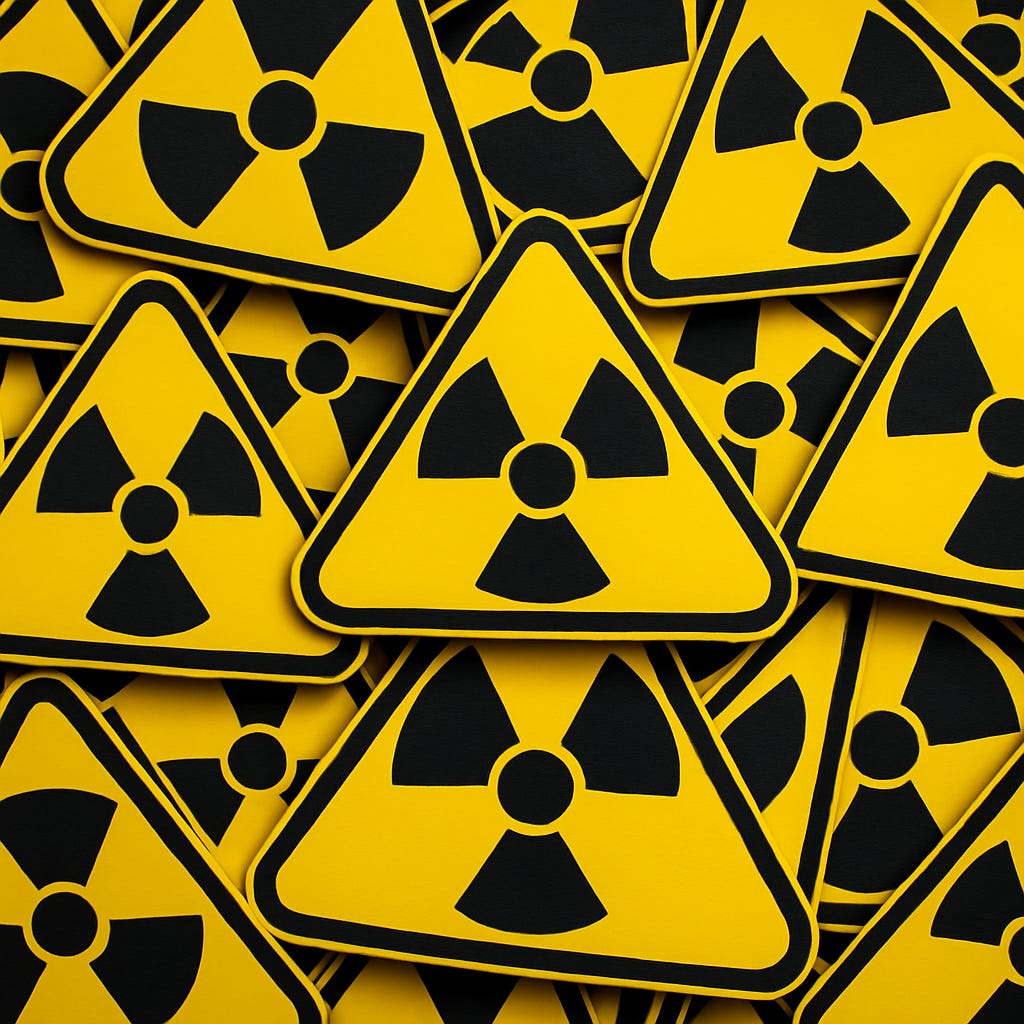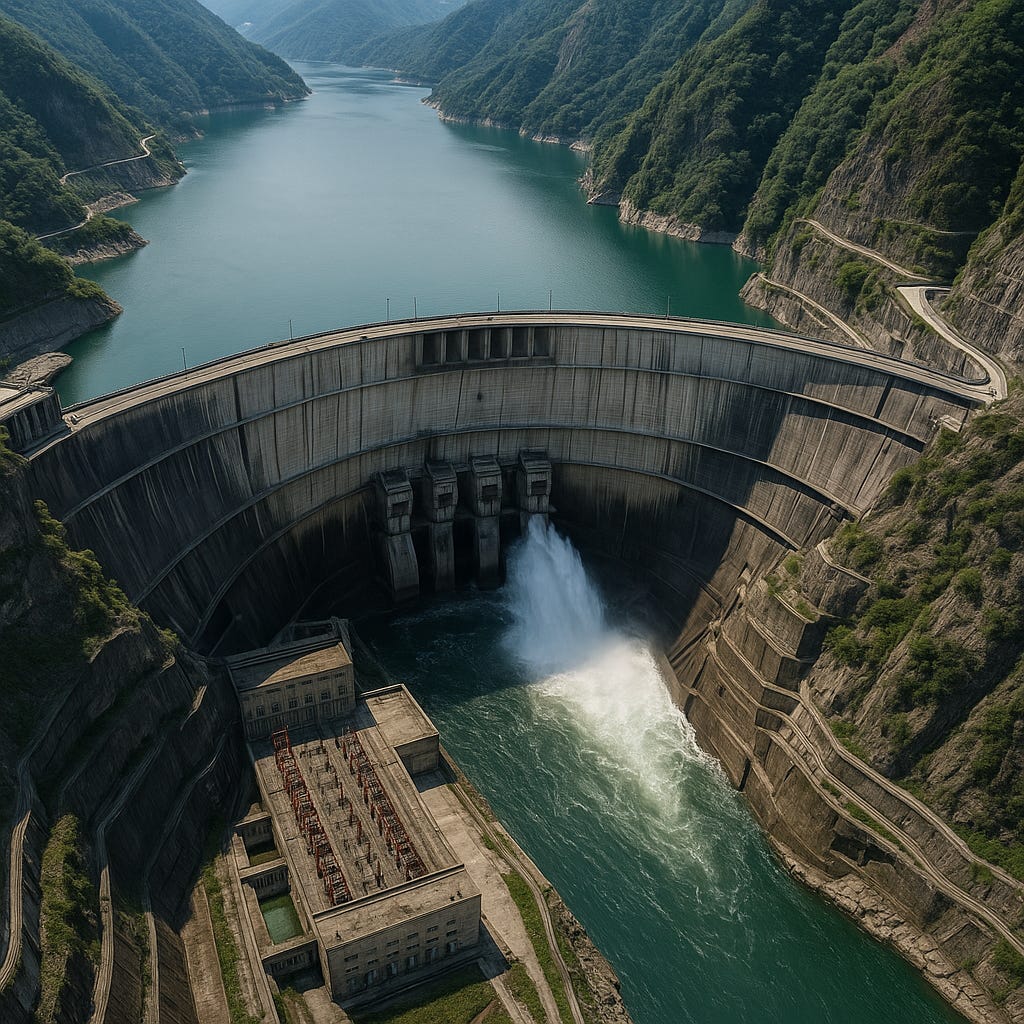10 Things Global News - 14th August 2025
The news from around the world
Trump Warns Putin of ‘Severe Consequences’
UN Plastics Talks Collapse Amid Disputes
Europe Warns Iran of Sanctions Over Nuclear Talks
Peru Enacts Amnesty for Conflict-Era Abuses
Israeli Strikes Kill 123 in Gaza City
UN Expert: Gaza Deaths Must Stay Priority
Macron Admits France’s Historic Violence in Cameroon
US Tariff Threat Raises Stakes for India
Germany, Allies Pledge $500M Ukraine Aid
China Tightens Control Over Tech at Mega Dam
President Donald Trump warned that Russia would face “very severe consequences” if President Vladimir Putin refuses to end the war in Ukraine after their summit in Alaska on Friday. The warning followed a virtual meeting with European leaders, including Ukrainian President Volodymyr Zelenskyy, who urged that Kyiv not be sidelined in peace talks.
European leaders — German Chancellor Friedrich Merz, British Prime Minister Keir Starmer, and French President Emmanuel Macron — stressed that a ceasefire must protect Ukraine’s and Europe’s vital security interests. They also called for stronger sanctions if Moscow rejects a truce.
Zelenskyy accused Putin of “bluffing” about peace while intensifying attacks, with Russian forces advancing in Donetsk, capturing villages and pressing near Pokrovsk. Merz warned that if Alaska talks fail, Western powers must increase pressure on Moscow. The summit comes amid concern in Europe that Trump could accept territorial concessions as part of a deal.
Sources: Associated Press, Al Jazeera
UN negotiations on a global treaty to tackle plastic pollution fell into disarray after dozens of countries rejected the latest draft text on August 13 in Geneva. The proposal, presented by talks chair Luis Vayas Valdivieso of Ecuador, drew criticism from both ambitious nations and oil-producing states.
Countries seeking stronger measures called the text weak, lacking legally binding commitments, and reducing the treaty to a waste-management plan. The European Union, Kenya, and Pacific island nations warned it failed to address the full life cycle of plastics or protect communities from pollution’s impacts.
Oil-producing states, including members of the Like-Minded Group, said the draft exceeded their “red lines” by going beyond waste management and lacking a clear scope. Environmental groups labelled the text a win for the petrochemical industry and a betrayal of future generations. With one day of talks left, consensus remains elusive after five failed negotiation rounds in 2½ years.
Sources: RFI, Straits Times
Britain, France, and Germany have warned they will reimpose UN sanctions on Iran if it fails to resume nuclear negotiations and cooperation with the International Atomic Energy Agency (IAEA) by the end of August.
In a letter to the United Nations dated August 8, the three countries — known as the E3 — said they were prepared to trigger the “snapback” mechanism, which restores sanctions lifted in 2015 under the nuclear deal. French Foreign Minister Jean-Nöel Barrot posted the letter publicly, reaffirming that the E3’s aim is to prevent Iran from developing a nuclear weapon.
The warning follows a breakdown in diplomacy after June’s 12-day war between Iran and Israel, which damaged nuclear-related sites. Since then, Tehran has suspended IAEA cooperation. Iranian parliamentarian Manouchehr Mottaki threatened a swift withdrawal from the Nuclear Non-proliferation Treaty if sanctions are reimposed. The E3 say Iran still has the option to return to diplomacy and full IAEA cooperation.
Sources: The Independent, Le Monde
Peruvian President Dina Boluarte has signed into law a blanket amnesty for members of the armed forces, police, and self-defence committees accused of serious human rights violations during the country’s internal armed conflict from 1980 to 2000.
The law, passed by Congress on July 9 and enacted on August 13, halts ongoing prosecutions and mandates the release of convicted individuals over 70. It covers crimes including extrajudicial executions, enforced disappearances, torture, and sexual violence committed during the conflict, which left an estimated 70,000 dead and more than 20,000 disappeared.
The Inter-American Court of Human Rights had ordered Peru to suspend implementation, but Boluarte pledged to proceed regardless. Human rights groups and victims’ families condemned the move as a betrayal that entrenches impunity and undermines rule of law. Critics warn it defies Peru’s obligations under international treaties to investigate and punish such crimes.
Sources: The Guardian, Human Rights Watch
Israeli forces intensified strikes on Gaza City on Wednesday ahead of a planned military takeover, with the Gaza health ministry reporting 123 deaths in the past 24 hours — the highest daily toll in a week. Air and tank bombardments destroyed homes in the Zeitoun and Shejaia neighbourhoods, while tanks hit houses in Khan Younis. Nine civilians seeking aid were reportedly shot dead in central Gaza.
Eight more people, including three children, died of starvation or malnutrition, bringing the war’s total to 235 such deaths, according to local health authorities. Hamas leaders met Egyptian mediators in Cairo to discuss a possible ceasefire, aid delivery, and governance changes.
Prime Minister Benjamin Netanyahu suggested Palestinians could leave Gaza, drawing widespread condemnation. Israel says 320 aid trucks entered the enclave in the past day, but the UN and Palestinians say supplies remain insufficient. The war, now in its second year, has killed over 61,000 Palestinians.
Sources: Arab News, Reuters
UN Special Rapporteur for the Occupied Palestinian Territories Francesca Albanese has warned that global moves to recognise a Palestinian state must not divert attention from stopping what she calls the “genocide” in Gaza.
Albanese said state recognition was important but long overdue, and that prolonged debate had allowed Israeli settlement expansion to erode the possibility of a viable Palestinian state. She urged governments to impose a total arms embargo on Israel, end trade agreements, and enforce the UN General Assembly’s September deadline for full Israeli withdrawal from occupied territory.
She said ending mass death in Gaza, ending permanent occupation, and ending apartheid were essential to guaranteeing equal rights. Albanese also criticised corporate actors “profiting from genocide” and urged consumers to exert influence through spending choices. Despite repression, she noted millions protesting worldwide and a growing generation fluent in the language of human rights.
Sources: The Guardian, Arab News
French President Emmanuel Macron has acknowledged his country’s “role and responsibility” for violence committed by French forces during Cameroon’s independence struggle between 1945 and 1971.
In a letter to President Paul Biya, Macron described the conflict as a “war” in which colonial authorities and the French army used “repressive violence” in several regions. A joint French-Cameroonian historical commission found that tens of thousands were killed between 1956 and 1961, hundreds of thousands displaced, and mass internment, forced displacements, and militia violence were used to suppress independence movements.
Macron launched the commission in 2022 during a visit to Yaoundé and pledged to open French archives and support further research. He stopped short of offering an apology or discussing reparations, prompting mixed reactions in Cameroon. Critics say acknowledgement alone is insufficient, while supporters view it as a necessary step toward confronting France’s colonial past.
Sources: BBC, RFI
The Trump administration has warned that US tariffs on Indian exports could rise further if upcoming talks between Donald Trump and Vladimir Putin fail to produce progress on Ukraine. India already faces a 50% tariff rate — double the earlier level — after a 25% baseline duty was combined with an additional 25% “secondary tariff” targeting crude oil imports from Russia.
US Treasury Secretary Scott Bessent said sanctions or tariffs could increase depending on the Alaska meeting’s outcome, and urged Europe to join Washington in imposing secondary tariffs on nations trading with Russia.
The hikes have hit Indian exporters hard, with companies halting projects, freezing orders, and warning of job losses. The measures threaten Prime Minister Narendra Modi’s manufacturing ambitions under “Make in India” and could cut US-bound exports by as much as 60%, according to estimates, unless exemptions or a negotiated rollback are secured.
Sources: Bloomberg, Times of India
Germany will coordinate with other Western backers to deliver up to $500 million in military aid to Ukraine through a new NATO supply line. The package will focus on critical air defense systems, anti-tank weapons, ammunition, and spare parts — equipment Germany’s government says is urgently needed to counter Russia’s intensified air strikes on Ukrainian cities.
The NATO mechanism began earlier this month, following a Dutch pledge of €500 million in air defense equipment and ammunition, and a Swedish commitment of $275 million as part of a joint Nordic package worth $500 million. Most equipment will be purchased in the United States.
Two deliveries are expected this month, though the Nordic package is likely to arrive in September. Aid is prioritized based on battlefield needs. Since Russia’s full-scale invasion in February 2022, Germany has delivered or pledged about €40 billion ($47 billion) in military support to Ukraine.
Sources: Associated Press, Washington Post
China’s Xiluodu Dam, the world’s fourth-largest hydropower station, has replaced foreign-made industrial control systems with domestically developed technology amid security and supply chain concerns. The Loongson 3C6000-powered NJ400 programmable logic controllers, produced by Atekon Technology, now fully operate the dam’s core control systems, replacing Siemens and Schneider units. Officials cited risks from industrial system vulnerabilities, including cyberattacks like the Stuxnet worm.
The move comes as Chinese regulators press domestic firms to reduce reliance on U.S. chips. Authorities have summoned major tech companies, including Tencent and ByteDance, over purchases of Nvidia’s H20 AI chips, questioning why they are not sourcing domestically. While not an outright ban, state media have amplified security criticisms, and official notices discourage H20 use in government-related projects.
These measures highlight Beijing’s broader push for self-sufficiency in strategic technologies, even as U.S. export restrictions and domestic capacity limits complicate chip production.















